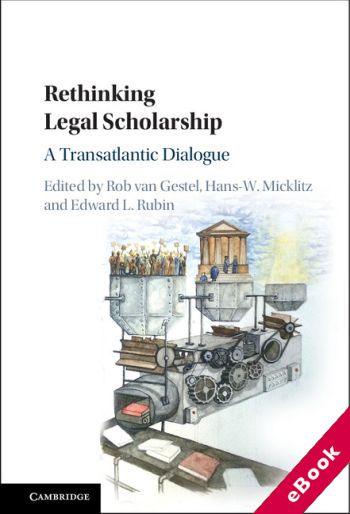
The device(s) you use to access the eBook content must be authorized with an Adobe ID before you download the product otherwise it will fail to register correctly.
For further information see https://www.wildy.com/ebook-formats
Once the order is confirmed an automated e-mail will be sent to you to allow you to download the eBook.
All eBooks are supplied firm sale and cannot be returned. If you believe there is a fault with your eBook then contact us on ebooks@wildy.com and we will help in resolving the issue. This does not affect your statutory rights.
Although American scholars sometimes consider European legal scholarship as old-fashioned and inward-looking and Europeans often perceive American legal scholarship as amateur social science, both traditions share a joint challenge. If legal scholarship becomes too much separated from practice, legal scholars will ultimately make themselves superfluous. If legal scholars, on the other hand, cannot explain to other disciplines what is academic about their research, which methodologies are typical, and what separates proper research from mediocre or poor research, they will probably end up in a similar situation. Therefore we need a debate on what unites legal academics on both sides of the Atlantic. Should legal scholarship aspire to the status of a science and gradually adopt more and more of the methods, (quality) standards, and practices of other (social) sciences? What sort of methods do we need to study law in its social context and how should legal scholarship deal with the challenges posed by globalization?